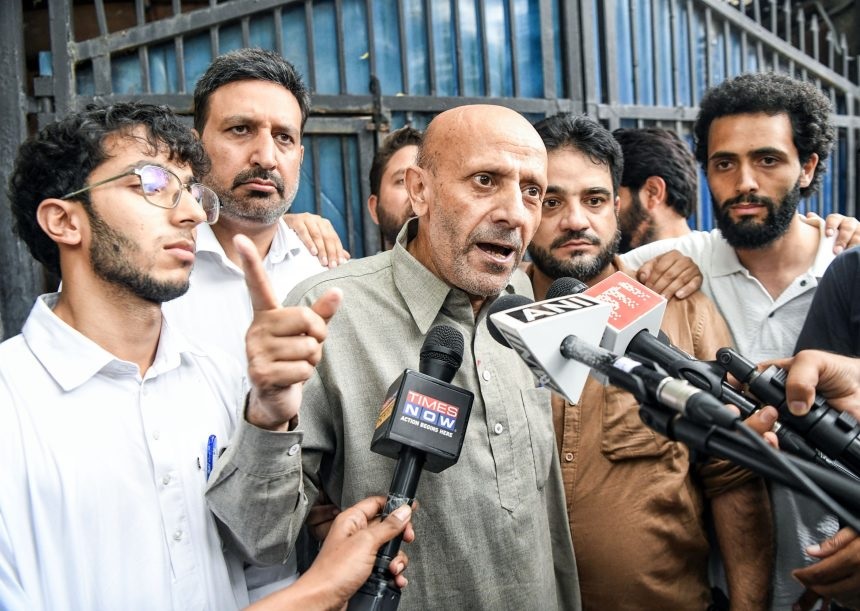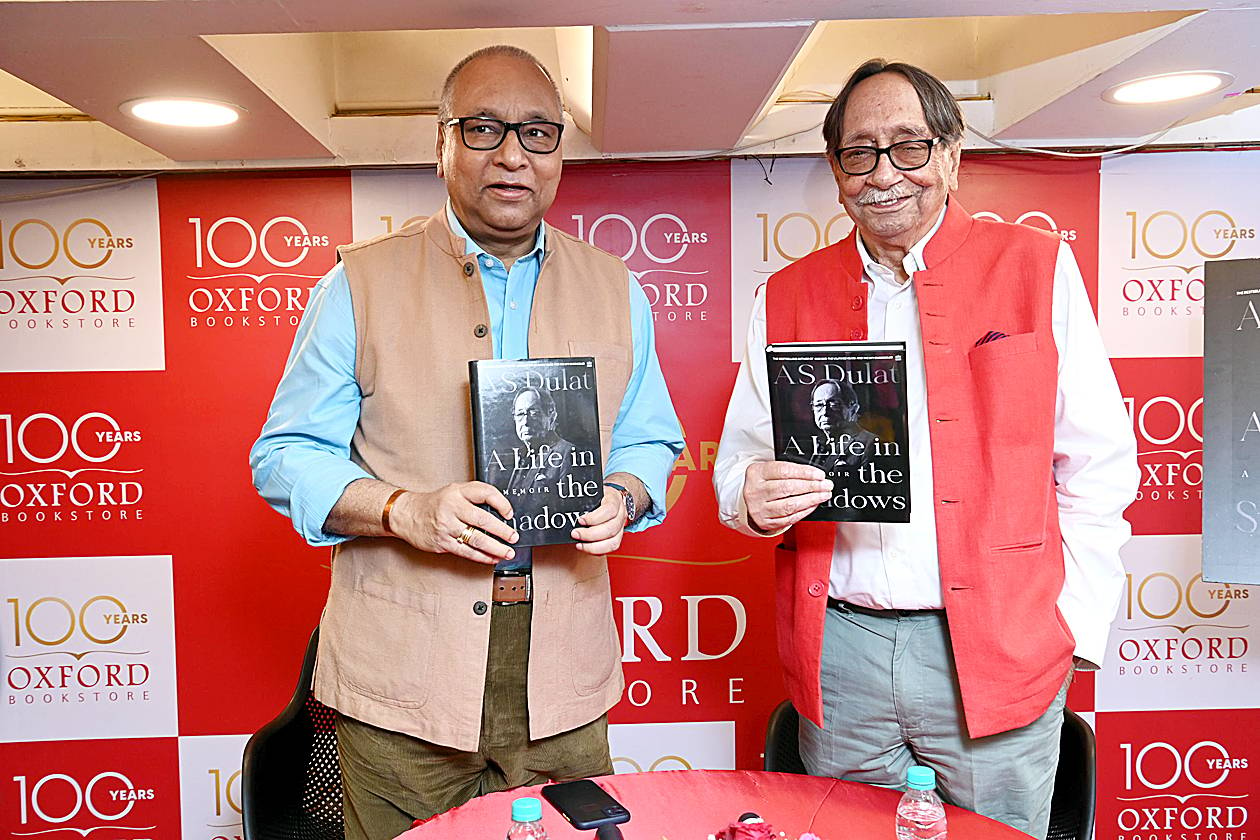Protest Behind Bars
By: Javid Amin | Srinagar | 28 June 2025
Baramulla MP and Awami Ittehad Party (AIP) chief Engineer Abdul Rashid, incarcerated in Delhi’s Tihar Jail, has announced a 24-hour hunger strike inside the prison—from 8 PM Saturday to 8 PM Sunday—in protest against what he calls the continued denial of democratic rights to the people of Jammu & Kashmir. His bold stand, taken from within one of India’s most secure detention facilities, seeks to spotlight the deepening political and civil disenfranchisement in Kashmir following the abrogation of Article 370.
This hunger strike, though brief in time, is monumental in its symbolism. Rashid, once a vocal legislator in the J&K Assembly and now a Member of Parliament, is turning his incarceration into a statement of resistance.
The Trigger: Denial of Rights, Legal Stalemate, and Political Apathy
According to a statement released by the Awami Ittehad Party, Engineer Rashid’s decision is rooted in years of mounting frustration over the treatment of Kashmiris—especially those detained under draconian laws like the Unlawful Activities (Prevention) Act (UAPA). The statement accuses both the Bharatiya Janata Party (BJP) and the Congress of indulging in selective outrage, invoking “authoritarianism” only when politically convenient.
“While the BJP highlights the atrocities of the 1975 Emergency, it forgets the repression in Kashmir over the past 11 years. Congress, meanwhile, speaks of an undeclared Emergency but ignores the prolonged detentions of Kashmiris.”
Rashid’s message is clear: both national parties have failed to uphold the constitutional and democratic rights of the people of Jammu & Kashmir.
Article 370 and Its Aftermath: The Larger Political Context
At the heart of Rashid’s protest lies the abrogation of Article 370 on August 5, 2019, a decision that stripped J&K of its special constitutional status and bifurcated it into two Union Territories. For many in Kashmir, this day marked the beginning of a new phase of disenfranchisement.
Thousands of political workers, religious leaders, students, journalists, and civilians were detained—some without charges, others under preventive laws. Despite multiple legal petitions and international outcry, the majority remain in prolonged detention.
Engineer Rashid was himself arrested under UAPA in August 2019, just days after the abrogation. Though elected to Parliament in 2024 while still in jail, he remains behind bars, a fact critics call emblematic of India’s deteriorating democratic credentials in the Valley.
Double Standards: Emergency Then vs Emergency Now
Rashid’s statement draws a stark comparison between the Emergency of 1975—a dark chapter in India’s democratic history—and the current state of civil liberties in Kashmir. He argues that political leaders across the spectrum selectively invoke the horrors of that era while turning a blind eye to the situation in Kashmir today.
“If India mourns the jailing of political leaders during the Emergency, why does it celebrate or ignore the same in Kashmir today?”
This rhetorical question highlights the hypocrisy and political selectivity that Kashmiri leaders, civil rights activists, and ordinary citizens frequently point out.
The Use of UAPA: A Legal Straitjacket
The Unlawful Activities (Prevention) Act, or UAPA, has become a legal catch-all for arresting dissenters. Human rights organizations have repeatedly warned that the UAPA:
- Allows detention without formal charges for up to 180 days.
- Makes bail nearly impossible due to its stringent criteria.
- Is often used to quell political dissent, especially in conflict regions like Kashmir.
Engineer Rashid’s case mirrors that of several other political prisoners and civil society members in Kashmir who have spent years in jail without a trial. Their legal limbo has been further complicated by shifting court schedules, administrative delays, and under-resourced legal aid.
Voices from Kashmir: Families, Faith, and Frustration
In Kashmir, Rashid’s announcement has resonated deeply. His supporters, political allies, and ordinary citizens view his hunger strike as a brave and necessary act of defiance. Family members of detainees have described the protest as giving “a voice to the voiceless.”
Many Kashmiris see Rashid not just as a political leader, but as one of the few voices willing to confront both regional and national power structures. His stance, though risky, is gaining moral legitimacy in a region where trust in democratic institutions is rapidly eroding.
The Road Ahead: What Does This Protest Signify?
While Rashid’s 24-hour hunger strike may not change government policy overnight, it does represent a critical shift in the political narrative. His protest comes at a time when:
- Elections are being held in J&K under UT status, not full statehood.
- Dialogue between Kashmiri leaders and the Centre remains stalled.
- Trust in judiciary and democratic processes is declining.
This symbolic hunger strike draws national attention back to Kashmir—not just as a security issue, but as a democracy issue.
National Reaction: Silence or Support?
So far, the reaction from Delhi’s political elite has been muted. Civil society groups and a few opposition MPs have acknowledged the hunger strike, but there has been no official statement from the Home Ministry or major national parties.
This silence only reinforces Rashid’s central accusation: that the plight of Kashmiri political prisoners remains intentionally overlooked by India’s political establishment.
Bottom-Line: A Protest Beyond a Meal
Engineer Rashid’s hunger strike is about far more than a single man abstaining from food. It is a metaphor for Kashmir’s hunger for justice, dignity, and democratic rights.
Whether one agrees with his politics or not, his action compels India to confront a hard truth: that the world’s largest democracy must extend its promises equally to all its citizens—including those in Jammu & Kashmir.



